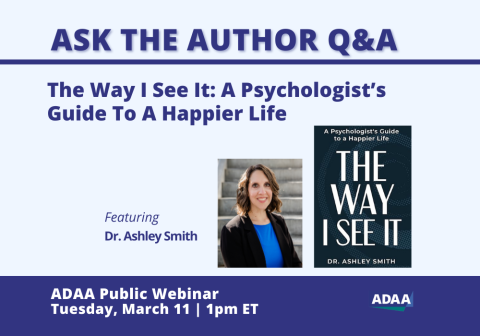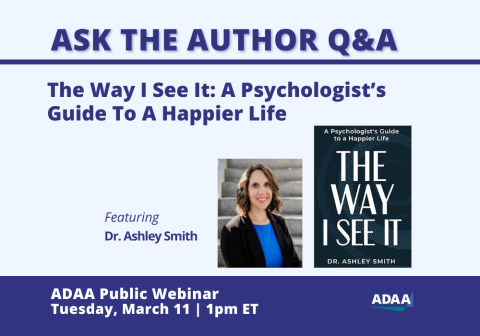The Underdog of OCD-Related Concerns Just Got Trich-ier: Bodily Focused Repetitive Behaviors During the COVID 19 Pandemic
The Underdog of OCD-Related Concerns Just Got Trich-ier: Bodily Focused Repetitive Behaviors During the COVID 19 Pandemic

Dr. Google is often the first stop for most individuals with bodily-focused repetitive behaviors (BFRBs) such as skin-picking (excoriation disorder) and hair-pulling (trichotillomania). Trying to understand these behaviors often leads to self-research when other treatments fail. Too often, clients tell me they have been told “why don’t you just stop?” or “it’s just a bad habit.” Fortunately, in recent years, fantastic organizations like The TLC Foundation (bfrb.org) and independent researchers and clinicians have increased the visibility of BFRBs.
Somewhere between one and five percent of the population meets criteria for BFRB diagnosis with the majority of the individuals assigned female at birth (American Psychiatric Association, 2013; Hayes, Storch & Berlanga, 2009). It is likely prevalence rates are even higher given the impact of stigma on self-reporting of symptoms. While most folks struggling with BFRBs have a history since pre-adolescence, many do not enter treatment until the consequences of the BFRB have reached a critical stage (or until their loved ones fear they have). Fundamentally, BFRBs typically result in relief or satisfaction of an urge. While the behaviors themselves are not typically unpleasant for the individual, the consequences of BFRB (e.g. judgment from others, scarring, baldness, infection, etc.) are often very distressing. Like many other challenges, added pressures associated with the COVID-19 global pandemic have only increased concerns and symptoms for individuals struggling with BFRBs.
Reduced in-person interaction and the shift to a virtual environment have provided the opportunity to turn off cameras and remain unseen while still, ostensibly, participating. The presence of others can sometimes deter BFRBs, so solitary activities may increase symptoms. In addition to the increased ability to pick or pull “in peace,” some individuals are finding it harder to resist the urge of BFRB due to boredom from consistently lower levels of stimulation, social and otherwise. Boredom, sleepiness, and anxiety are often triggers for increased vulnerability to BFRBs for those who are already struggling. Many folks whose BFRB symptoms increased due to lack of social oversight may now be experiencing increased shame and fear of social judgment for the consequences of BFRB as they return to in-person activities. Folks are experiencing increased anxiety and shame in addition to an increased history of engaging with the BFRB rather than resisting the urge when it shows up. Past behavior predicts future behavior, and the difficulty of engaging in an alternative to the BFRB increases.
Fortunately, there are very effective evidence-based treatment options for reducing BFRB symptoms. While there is mixed evidence about medication for treating BFRBs (Mansueto, Goldfinger Golomb, McCombs Thomas, & Townsley Stemberger, 1999), there are multiple evidence-based, behaviorally-oriented treatments available. These include: cognitive behavioral therapy, which typically emphasizes habit reversal training (HRT; Azrin, Nunn & Frantz, 1980) and the comprehensive model (ComB; Mansueto, Goldfinger Golomb, McCombs Thomas, & Townsley Stemberger, 1999), acceptance and commitment therapy (Woods & Twohig, 2008), and dialectical behavioral therapy (Keuthen et al., 2010).
If you or someone you know is struggling with a BFRB, here are a few strategies to try on your own, keeping in mind each BFRB is unique:
- Increase awareness by tracking your urges and BFRB episodes (e.g. phone applications like SkinPick and TrichStop, creating your own Excel spreadsheet).
- Look for patterns and block triggers (e.g. wear gloves, put tape or Band Aids on fingers, cover mirrors, etc.).
- Identify appealing alternative behaviors (e.g. peeling tape or stickers off a fidget object, toying with the fibers of a paintbrush, squeezing a fist or keeping your hand in your pocket).
If someone you know has a BFRB, one of the most important things you can do is learn about BFRB and express understanding that the BFRB is serving a purpose, whether it is self-stimulation, soothing anxiety, relief of perceived flaws, some combination of these, or something else. Rather than shaming your loved one for their repetitive behavior, respond with openness and curiosity. This will support their willingness to engage in treatment. If you are struggling with a BFRB, know that you are not alone; there are support groups available and practitioners ready and excited to work with you.


















